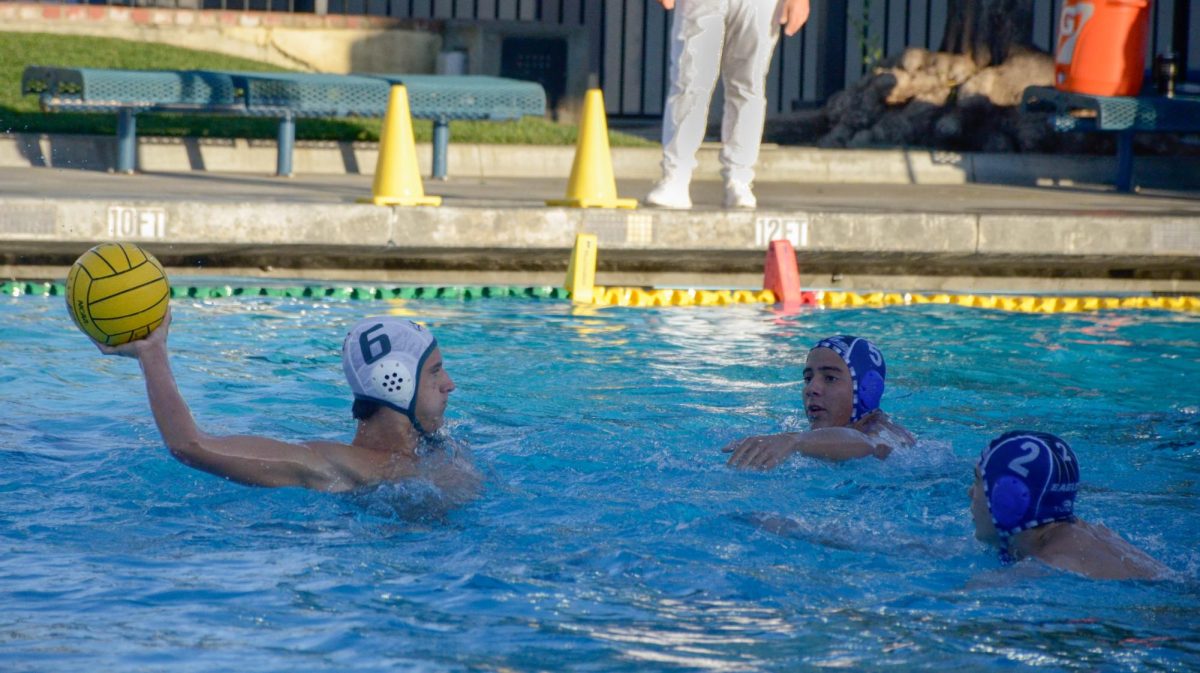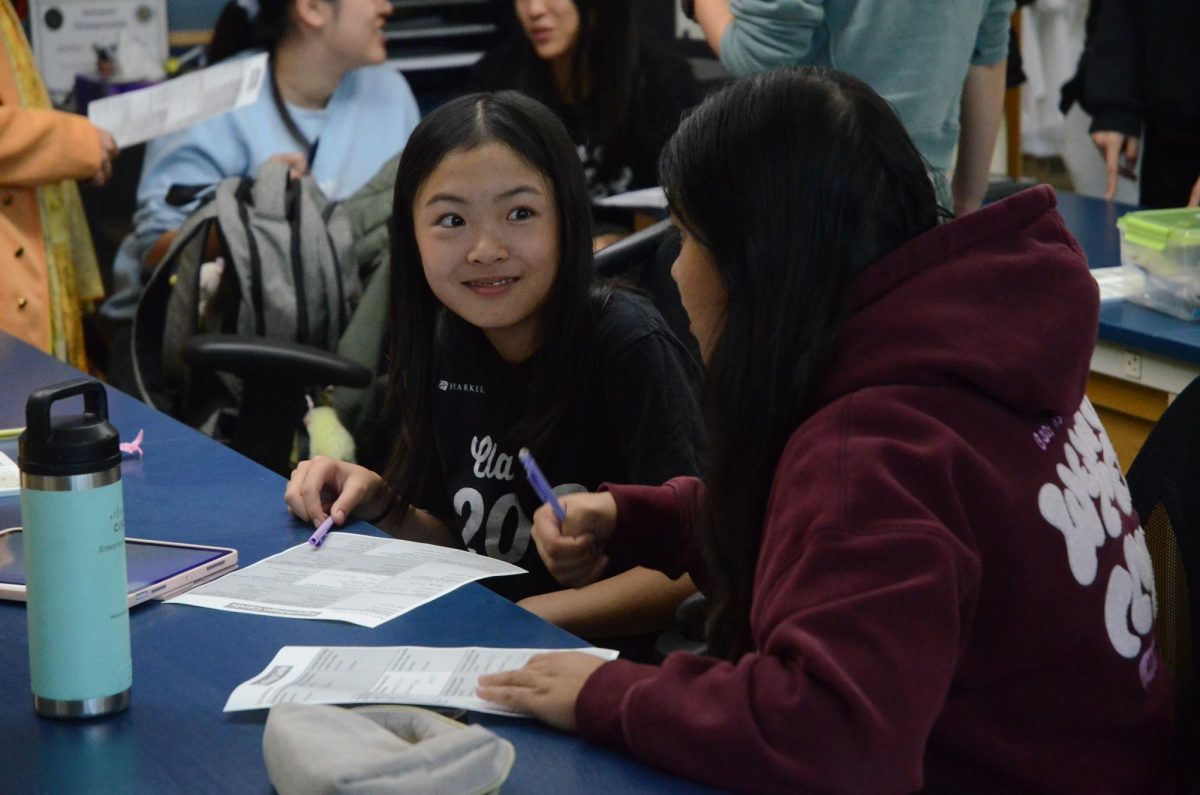Humans of Harker: Divya Rajasekharan campaigns for change
“If all of a sudden you feel like you can’t live in the way that everyone is entitled to, I think that’s a kind of deprivation that’s unjust, and a lot of why I [participate in activism] is because I want the next girl who’s on this campus to feel just a little less uncomfortable and a little more free to be exactly who she is and a lot less apologetic about her nature,” Divya Rajasekharan (12) said.
January 23, 2017
Feet planted firmly on the ground, hands on her hips, eyebrows slightly raised—Divya Rajasekharan (12) examines the world with a critical eye, constantly ready to enact change.
Participating in the dress code forum last year was her first step into activism and feminism in the Harker community. Despite her apprehension to speak out against the judgement of administration, Divya pushed past her uncertainty because she truly believed her words and opinion would help advocate for a worthy cause.
“The first time that I took a stand and stood up in that auditorium when we were having that school-wide discussion forum,” she said. “Just proclaiming that I thought there was something inherently sexist about the dress code was a kind of leap of faith moment.”
From there, she and a group of friends launched the Feminism Roundtable, a discussion group that focuses on the issues of gender inequality in the Harker community. The organization hosts weekly discussions in order to tease out problems that students have encountered on campus.
“We want it to be focused on the students and their experiences, and we want to make people feel as if they’re being heard, that they’re not alone,” she said. “If things are maybe uncomfortable to talk about, we want it to be a supportive environment.”
In order to further express herself and pursue her interests in activism, Divya writes for redefy, a youth run online publication that focuses on all issues of inequality. Introduced to the program by a peer she met through speech tournaments, she has written pieces for the past two years about her own personal experiences as well as common acts of microaggression on campus.
“There’s a receptive audience [at redefy], and it was a way of collaborating with like-minded people to define my thoughts because I think that ideas tend to be amorphous until you try to write them down,” she said. “Once you do, they start to become more concrete and start to fully take shape.”
Her desire to rid of feelings of discomfort and isolation in certain social situations motivates her to pursue feminism.
“If all of a sudden, you feel like you can’t live in the way that everyone is entitled to, I think that’s a kind of deprivation that’s unjust, and a lot of why I [participate in activism] is because I want the next girl who’s on this campus to feel just a little less uncomfortable and a little more free to be exactly who she is and a lot less apologetic about her nature,” Divya said.
Sana Aladin (12), Divya’s close friend and co-founder of the Feminism Roundtable, describes Divya’s mentality when it comes to fighting for her beliefs.
“[Divya’s] constantly so on top of things, and you can tell she’s so genuinely passionate about what she does,” she said. “She’s just constantly there for you and always there to do what needs to get down and beyond that. She’s always just excited to do what she’s doing.”
Divya hopes that contributions to the community like Feminism Roundtable are remembered and continued by underclassmen after she graduates.
“We’re definitely not at a point where we’re anywhere close to solving [issues at Harker], and it’s not something you can do in a year’s worth of work,” she said. “We really hope there are people who believe strongly enough in our mission that they feel compelled to continue organizing sessions like we do.”


















![“[Building nerf blasters] became this outlet of creativity for me that hasn't been matched by anything else. The process [of] making a build complete to your desire is such a painstakingly difficult process, but I've had to learn from [the skills needed from] soldering to proper painting. There's so many different options for everything, if you think about it, it exists. The best part is [that] if it doesn't exist, you can build it yourself," Ishaan Parate said.](https://harkeraquila.com/wp-content/uploads/2022/08/DSC_8149-900x604.jpg)




![“When I came into high school, I was ready to be a follower. But DECA was a game changer for me. It helped me overcome my fear of public speaking, and it's played such a major role in who I've become today. To be able to successfully lead a chapter of 150 students, an officer team and be one of the upperclassmen I once really admired is something I'm [really] proud of,” Anvitha Tummala ('21) said.](https://harkeraquila.com/wp-content/uploads/2021/07/Screen-Shot-2021-07-25-at-9.50.05-AM-900x594.png)







![“I think getting up in the morning and having a sense of purpose [is exciting]. I think without a certain amount of drive, life is kind of obsolete and mundane, and I think having that every single day is what makes each day unique and kind of makes life exciting,” Neymika Jain (12) said.](https://harkeraquila.com/wp-content/uploads/2017/06/Screen-Shot-2017-06-03-at-4.54.16-PM.png)








![“My slogan is ‘slow feet, don’t eat, and I’m hungry.’ You need to run fast to get where you are–you aren't going to get those championships if you aren't fast,” Angel Cervantes (12) said. “I want to do well in school on my tests and in track and win championships for my team. I live by that, [and] I can do that anywhere: in the classroom or on the field.”](https://harkeraquila.com/wp-content/uploads/2018/06/DSC5146-900x601.jpg)
![“[Volleyball has] taught me how to fall correctly, and another thing it taught is that you don’t have to be the best at something to be good at it. If you just hit the ball in a smart way, then it still scores points and you’re good at it. You could be a background player and still make a much bigger impact on the team than you would think,” Anya Gert (’20) said.](https://harkeraquila.com/wp-content/uploads/2020/06/AnnaGert_JinTuan_HoHPhotoEdited-600x900.jpeg)

![“I'm not nearly there yet, but [my confidence has] definitely been getting better since I was pretty shy and timid coming into Harker my freshman year. I know that there's a lot of people that are really confident in what they do, and I really admire them. Everyone's so driven and that has really pushed me to kind of try to find my own place in high school and be more confident,” Alyssa Huang (’20) said.](https://harkeraquila.com/wp-content/uploads/2020/06/AlyssaHuang_EmilyChen_HoHPhoto-900x749.jpeg)



![“If all of a sudden you feel like you can’t live in the way that everyone is entitled to, I think that’s a kind of deprivation that’s unjust, and a lot of why I [participate in activism] is because I want the next girl who's on this campus to feel just a little less uncomfortable and a little more free to be exactly who she is and a lot less apologetic about her nature,” Divya Rajasekharan (12) said.](https://harkeraquila.com/wp-content/uploads/2017/01/Screen-Shot-2017-01-23-at-8.06.46-PM.png)






